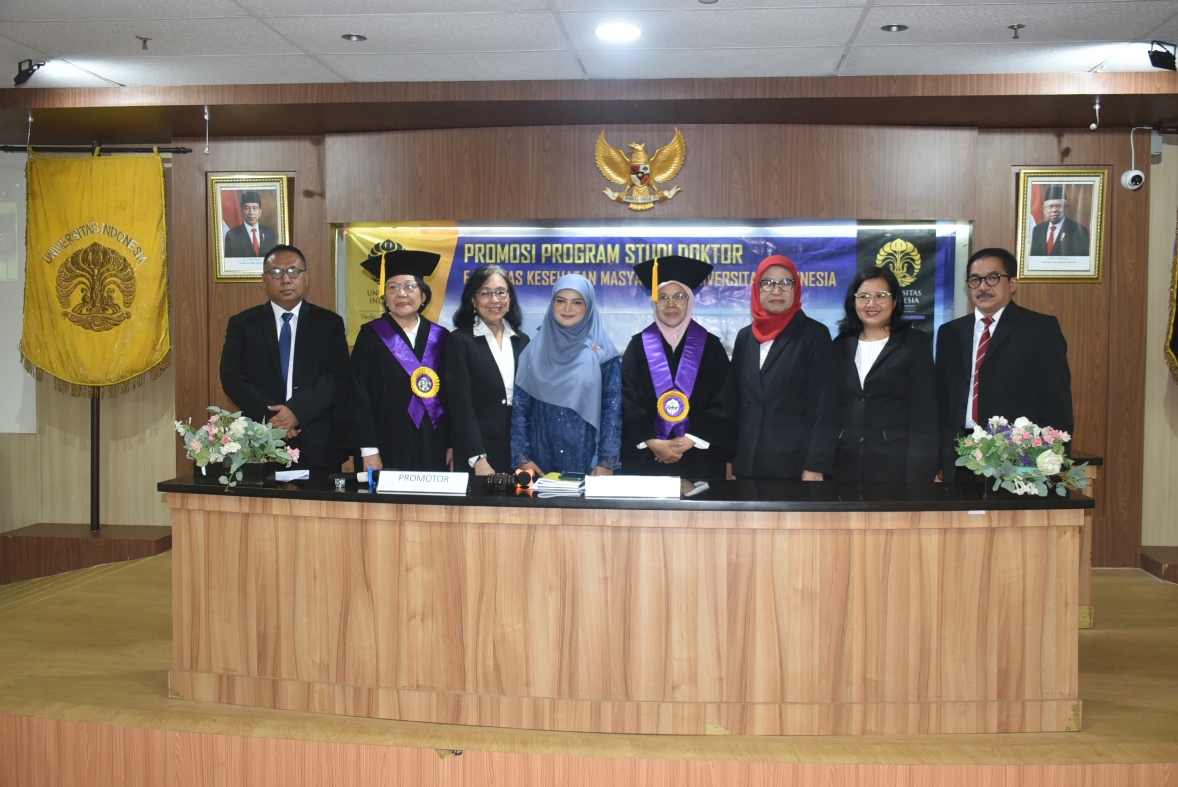Modern Family Planning Postpartum Contraception is an effort to prevent unplanned pregnancies that are closely spaced, initiated during the postpartum period. The use of modern postpartum contraception is influenced by various factors, including individual, family, and Family Planning (FP) service facilities. Efforts to increase the prevalence of modern postpartum contraception can be carried out through Communication, Information, and Education (CIE), as well as quality counseling by midwives.
However, the coverage of modern Family Planning Postpartum Contraception in Indonesia is still at 49.1%, which is lower than the government target of 70%. This condition poses a risk for unplanned pregnancies, which could increase the Maternal Mortality Rate (MMR) and Infant Mortality Rate (IMR).
Central Java ranks as the third highest province for MMR in Indonesia. In addition, the MMR in Banyumas and Cilacap regencies is among the top five in Central Java. Moreover, the quality of FP counseling in Indonesia remains low, contributing to high unmet needs and a significant dropout rate from FP programs.
Given this situation, Inggar Ratna Kusuma raised the question: How does the quality of family planning counseling using the Balanced Counseling Strategy (BCS) compare to counseling using the Decision-Making Tool (DMT) in influencing the intention and use of modern postpartum contraception in two regencies in Central Java?
With this background, Inggar Ratna Kusuma conducted research for her dissertation titled “The Influence of Family Planning Counseling Quality Postpartum by Midwives on Intention and Use of Modern Contraception,” aiming to determine the impact of counseling quality on modern postpartum contraception use in Central Java. On Wednesday, June 26, 2024, Inggar Ratna held her open doctoral promotion session in Public Health Sciences (IKM) at the Faculty of Public Health (FPH) of the Universitas Indonesia (UI) in the Doctoral Promotion Room, Building G, FPH UI.
The research used a quantitative prospective cohort design, analyzing the comparison of the effect of counseling quality in midwifery services on the intention and use of modern postpartum contraception between regions applying the Balanced Counseling Strategy (BCS) and the Decision-Making Tool (DMT). The research findings revealed that midwife-led counseling in postpartum family planning services increased the intention to use contraception during pregnancy and postpartum modern contraception use, with the most optimal time for initiating postpartum contraception being 0-3 days after delivery, while the mother is still in a healthcare facility.
“The research conducted by Dr. Inggar is very beneficial and crucial in improving postpartum family planning and reducing IMR. Its uniqueness lies in the persistence and dedication shown by Dr. Inggar, which has resulted in significant contributions. With this title, we hope Dr. Inggar will become an independent researcher in the future,” said Dr. Dra. Rita Damayanti, MSPH, the supervisor, in her opening remarks.
The Vice Rector of Muhammadiyah University of Purwokerto also attended and gave a speech. “On behalf of Muhammadiyah University of Purwokerto, we would like to express our gratitude because one of our lecturers has been diligently mentored at the University of Indonesia. Dr. Inggar has delivered extraordinary research, simple yet highly meaningful. Once again, congratulations, and Dr. Inggar is the first lecturer to receive a doctoral degree in the midwifery study program at our university.”
At the end of the session, the chairperson announced that Inggar Ratna Kusuma, born on March 19, 1986, in Magelang, had successfully completed her studies and earned a doctoral degree in Public Health Sciences (IKM). She became the 22nd doctoral graduate in IKM in 2024, the 318th IKM doctoral graduate, and the 407th doctoral graduate from FPH UI.
The session was led by Prof. Dr. Dra. Dumilah Ayuningtyas, M.A.R.S., as the examiner. It was also attended by Dr. Dra. Rita Damayanti, MSPH, as the supervisor, and Prof. Dr. dr. Sabarinah Prasetyo, M.Sc., as the co-supervisor. The examination committee included Prof. Irwanto, Ph.D., Psychologist; Dr. drs. Sutanto Priyo Hastono, M.Kes.; Dr. dr. Hadi Susiarno, Sp.OG(K), M.Kes.; Dr. Maria Gayatri, S.Si., M.A.R.S.; and Dr. Indra Supradewi, S.K.M., M.K.M. (ITM)

